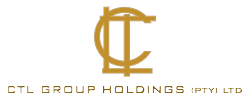Take care before you share: The dangers of social media use in the workplace

Advancements in technological gadgets such as smart phones and laptops, as well as the recent breakthroughs made with artificial intelligence, have undoubtedly made our lives easier by enabling us to access information seemingly at the speed of light.
Furthermore, social media platforms such as Facebook, Instagram and X (formerly Twitter) have enabled users to connect and communicate with people who are on the other side of the world with a few strokes on a keyboard.
It is not uncommon for users of social media platforms to take advantage of the fact that they are engaging in a virtual reality (and not physical reality) by posting and sharing information or statements that are untrue and offensive to others.
Some of these untrue statements may amount to defamation, which is defined as the unlawful publication of a statement made by a person (defamer) against another person (defamed). Publication generally refers to instances where a third party hears or reads the statement.
In the context of social media, defamation may include conduct such as publishing inaccurate information (also referred to as “fake news”), making comments, or even sharing false information about someone or an organisation to portray them in a negative light and cause harm to their reputation and good name.
For conduct to amount to defamation, there must be:
• a publication of a statement (verbal or written);
• the defamer must have intended to defame a person;
• there must be harm and injury; and
• the publication must violate a person’s right to their good name, reputation and dignity.
The test for defamation is an objective assessment of how an average person would interpret the statement, considering both its explicit and implied meaning.
Differently put, the question would be whether the statement, in its ordinary sense, would likely diminish an individual or entity’s standing in the eyes of society.
Defamation must, of course, be juxtaposed with the right to freedom of expression. However, this right is not without limitation.
Steps are, however, being taken by the legislature to address the growing army of social media warriors who share false information on social media platforms.
One such step is the introduction of the Prevention and Combating of Hate Crimes and Hate Speech Bill (Act) which was assented to by President Ramaphosa on 9 May 2024.
The purpose of the Act is to, among other things, give effect to constitutionally enshrined rights, including human dignity, equality and the right to freedom and security.
However, the Act also contains implications for employers as it is important to read the Act in conjunction with other employment law legislation such as the Employment Equity Act 55 of 1998 (EEA) and the harassment code published in terms of the EEA (Code).
The Act criminalises hate crime and hate speech and, consequently, an employer may institute disciplinary proceedings in conjunction with any criminal proceedings that may be underway against an individual.
Protective steps that employers can take Employers may ultimately take the following proactive measures to protect themselves from the dangers associated with social media:
• Implementing social media policies and training employees on the use of social media.
• Regularly monitoring their social media channels for negative or false statements.
• Responding promptly and professionally to negative or defamatory statements.
• Correcting false information.
• Considering legal action in cases of defamation.
• Insurance coverage for defamation claims.
As we move further into the digital age, employers and employees alike need to be conscious of the material that they share online as this may have legal and reputational ramifications.
For employees in particular, the cardinal rule is to take care before you share as you might see your social media posts again at a disciplinary hearing.
If an employee’s social media post refers to or references their employer or, alternatively, if the employee is publicly associated with the employer, there would be a sufficient link to the workplace for the employer to discipline an employee for an inappropriate post.
Anli Bezuidenhout, Phetheni Nkuna, Katekani Mashamba, Serisha Hariram and Thato Maruapula
